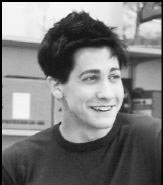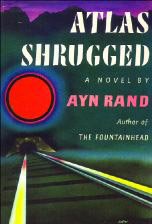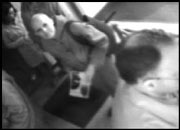Jake Gyllenhaal’s eyes give him the aspect of a Muppet lost in thought. He is best known for playing a wide-eyed boy taken by the science of rockets (October Sky), a blurry-eyed boy who does violent things in the haze of sleepwalking (Donnie Darko), and a bouncy-eyed boy trapped in a shiny plastic bubble (Bubble Boy). His features are theatrically overstated: fat lips, thick eyebrows, and distended eyelids that have to stretch to conceal two glistening, gluey globes.
In Lovely & Amazing (in which he is both) his eyes are huge and heavy and ink-blue. They roll around in their watery sockets. One moment they are the bleary embodiment of retail mundanity (he works at a one-hour photo); the next moment they seem to swell and bulge forth with sexual longing. (His character may be sensitive, but he’s also a 17- year-old male.) You’re never really sure if his eyes are a distraction or if everything else is the distraction and his eyes are the performance.
Mr. Gyllenhaal should never put on sunglasses, or sleep, or play a blind man on film. His close-ups are particularly riveting, composed of unflagging intrigue and suspense. How can his eyes be so big, one wonders, rapt, and how does he keep them from falling out of his head? And if they did fall out—how could they not, really—is someone prepared to catch them?
The Good Girl is out this week. In it, Mr. Gyllenhaal plays something of a bad boy, and if the director has done his job correctly, there will be plenty of opportunities for Mr. Gyllenhaal to gaze directly into the camera.
He will stare out into dark theaters with those two huge eyeballs. Thousands of eyeballs will stare back.








